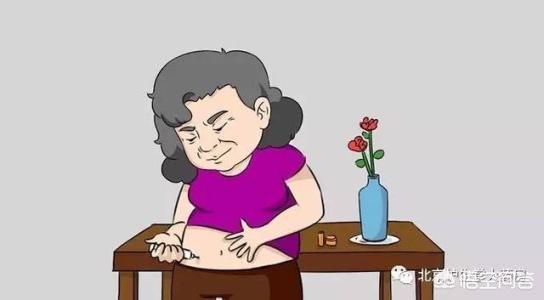In which case can diabetes be controlled well by lifestyle interventions instead of medication?
I'm Dr. Small Eyes, and I hope my answer, helps you.
Pre-diabetic or impaired glucose tolerance states do not require medication.
What makes a person pre-diabetic
diabetesPre-diabetes refers to a condition where the fasting blood glucose is within the normal range of 5.9 mmol/L, but the 2-hour postprandial blood glucose is between normal and diabetes, a condition that people often refer to as impaired glucose tolerance, or pre-diabetes.
In fact, when encountered in this situation, you can first of all do not use drugs to control, as far as possible, the choice of life intervention, if after repeated improvement of their lifestyle, blood sugar is still not controlled up to the standard, small eyes of the doctor that you'd better start the drug to take medication.
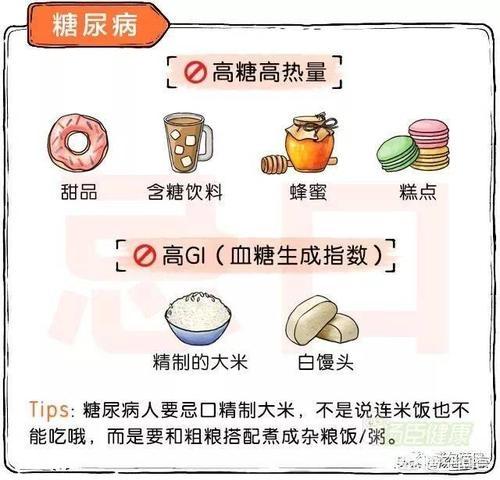
How should diabetics eat properly?
People with diabetes need to increase their dietary fiber intake appropriately.
The dietary fiber of food is not digested and absorbed by the human body, and a high fiber diet can alleviate the symptoms of high blood sugar after meals, as well as improve the effect of glucose tolerance, reduce the amount of insulin and reduce blood lipids.
Eating more dietary fiber can also stimulate the secretion of digestive juices and promote gastrointestinal peristalsis, preventing constipation. High dietary fiber foods can have a good effect on blood sugar reduction.
Dr. Small Eyes recommends choosing green beans, kelp, buckwheat noodles, cornmeal, sorghum flour, and other such foods.
People can eat more soy juice foods.
Diabetics can eat more soybeans because they are a good source of plant-based protein that is beneficial for diabetics.
Whenever I think your lifestyle improvements are working.
However, for some patients with poor compliance, such as those who are too old to exercise, you can't actually prevent the onset of type 2 diabetes or control blood glucose to an effective range goal with lifestyle interventions alone.
What you need to consider is that diet and exercise can control your blood glucose within a reasonable range, but there is no guarantee that your blood glucose will not rise in the future, and you would be better off combining this with pharmacological interventions to help bring your blood glucose into an effective range.
In the end, though, whether you're on medication or exercise control, it's effective as long as you're able to keep your blood sugar in the best possible range.
I'm Dr. Small Eyes, so if there's anything you don't understand, you can comment and let me know.
Lifestyle interventions, there is a great deal of uncertainty. Therefore, all points in this response should be used only as a reference and not as medical advice.
As long as the pancreatic beta cells are not severely damaged, it is possible to control blood glucose well with lifestyle interventions.
How do you know, first of all, if the pancreatic beta cells are damaged?
Do an "insulin release test" to look at fasting insulin and postprandial insulin levels. If they are high or the peak insulin is delayed, it may indicate that there is still only insulin resistance and the pancreatic beta cell damage is not serious.
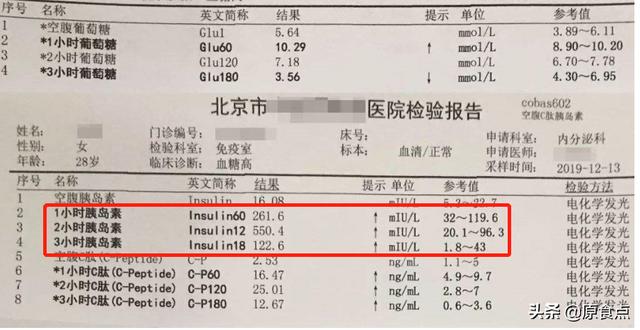
At this point, here's what you need to do:
1. Abandon all high-calorie, low-nutrient foods as much as possible, which are the main cause of type 2 diabetes in most people. Common foods includeBeverages, cookies, doughnuts, sugar, cakes, also sugar-fat mixes such as fritters, doughnuts, twists, etc... Not only are these foods low in nutrient density, but they can also contain certain trans fatty acids that cause inflammation and aggravate insulin resistance.

2, do not eat refined rice and noodles, these grains in the refined processing treatment, eliminating a large amount of dietary fiber, resulting in blood glucose rises too quickly, so that the pancreas has to secrete more insulin, aggravating the burden on the pancreas. If it is pre-diabetic, you can eat some brown rice, black rice, buckwheat, quinoa and other whole grains, if it is already diabetic and is in the middle or late stage, then including whole grains should not eat too much.
3. Eliminate foods that may cause food allergies or sensitivities, often including wheat, dairy, corn, soy, etc. Don't underestimate food sensitivities, which can cause immune system disruption and increase inflammation. But it is true that this varies from person to person, some people are not sensitive to any of them, while others are sensitive to one or more. The routine is to not eat these types of foods for a while for 3-6 weeks, watch your body carefully for changes, then add them in like for like in 4 day increments and watch your body again.
4. Half of your daily plate should be taken up by dark green vegetables as well as colorful vegetables. The remaining 1/4 should be filled with proteins and good fats, thane.g. fish, eggs, organic meats, avocado, olive oiletc. Save the last part for whole grains + low-sugar fruits likeBrown rice, black rice, buckwheat, quinoaetc.

5. Manage stress, manage stress, manage stress. Food is not the only source of blood sugar, but when the body is faced with chronic stress, the adrenal glands secrete cortisol, which stimulates blood sugar to rise. Everyone's sources of stress are different, so be sure to find your stressors and focus on addressing them.Meditation, YogaAll good ways to decompress.
6. Don't stay up late. Staying up late can lead to leptin resistance, which can exacerbate insulin resistance, and not only that, but breaking circadian rhythms is a terrible thing to do, and your body can damage your health on multiple levels. Really don't stay up late.
7, anti-inflammatory, detoxification, you can eat more appropriateTurmeric, garlic, green tea, whole egg.and other foods.
8. Exercise. Resistance exercise improves insulin sensitivity, and at home you can also choose to do push-ups, weighted squats, dumbbells and so on.
9. Nutritional supplementation. Long-term high-calorie, low-nutrient diets result in severe nutritional deficiencies, and people with type 2 diabetes tend to be deficient inmineral chromium, mineral magnesium, vitamin D, biotin, lipoic acid, omega-3 fatty acidsand other nutrients.Eggs, marine fish, animal offal, organic meat, dark green vegetablesetc. are high in these nutrients [1].
Follow Original Food Spot for more different blood sugar tidbits! (All pictures in this article are from the internet)
【1】 "Blood Sugar Solution Formula" Electronic Industry Press ISBN 978-121-35798-5 P67
Elevated blood glucose can damage a variety of target organs; damage to blood vessels can increase the risk of cardiovascular disease; damage to the kidneys can increase the risk of chronic kidney disease; damage to the retina can increase the risk of blindness; damage to the nerves can cause sensory abnormalities, organ dysfunction and other risks. Therefore, diabetic patients should lower glucose reasonably to reduce target organ damage and delay the emergence of complications. Under what circumstances can diabetic patients lower their blood glucose only through lifestyle intervention? Next, Medical Senlution will analyze for you.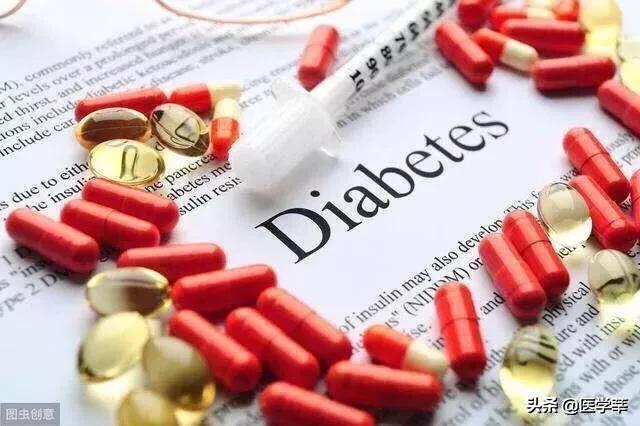
Most diabetic patients need to use drugs to lower blood glucose, mainly for two reasons: First, diabetes has an insidious onset and is usually asymptomatic in the early stages. When diabetes is detected, blood glucose may already be at a high level, and the body's ability to secrete insulin may have declined, and its own ability to regulate blood glucose has declined, so patients need to rely on oral medication or insulin in order to control their blood glucose in the target range; second, diabetes is a progressive disease. Secondly, diabetes is a progressive disease, with the prolongation of the disease, blood glucose may rise gradually, patients who used to rely on lifestyle intervention to lower blood glucose may need to start oral drug therapy, and patients who used to rely on oral medication to lower blood glucose may need to start insulin to control blood glucose. However, this does not mean that all patients with diabetes should be given medication to lower glucose from the start. The glucose-lowering goal for patients with diabetes is usually to control glycated hemoglobin below 7.0%, and some patients who are found to be timely, in the early stages of diabetes, and have a small rise in blood glucose can have their glycated hemoglobin controlled in the target range by changing their lifestyles, but they need to have regular monitoring of their blood glucose and glycated hemoglobin, and during this period of monitoring, if not However, regular monitoring of blood glucose and glycemic hemoglobin is needed, and during the monitoring period, if non-pharmacological treatment is no longer able to control blood glucose to the target range, pharmacological treatment should be initiated. Secondly, some diabetic patients are given insulin to control blood glucose at the beginning of the treatment, and after a period of treatment, the damage to the pancreatic B-cells caused by hyperglycemia can be alleviated, so that their ability to secrete insulin has been restored, and this part of the patient can be temporarily removed from the drug treatment, and can rely on lifestyle interventional therapy to lower blood glucose, but the non-drug treatment lasts for a limited time, and regular monitoring of blood glucose is required, and ultimately, drug therapy may need to be initiated. Drugs may eventually need to be initiated as well.
In terms of lifestyle interventions, diet, exercise, and weight are all priorities for intervention. In terms of diet, diabetic patients should reduce the total daily calories of food, especially food rich in carbohydrates and fat. Carbohydrates can be absorbed into the blood in the form of glucose through intestinal decomposition, which is the main source of blood glucose; fat belongs to high-calorie food, and long-term excessive intake can also elevate blood glucose; alcohol also belongs to high-calorie food, and long-term large amounts of alcohol are easy to elevate blood glucose, and it is easy to induce hypoglycemia when drinking alcohol in an empty stomach, therefore, diabetic patients should limit or quit drinking alcohol; it can be used to appropriately increase intake of dietary fiber-rich foods with the function of delaying postprandial blood glucose elevation. It can increase the intake of food rich in dietary fiber, which has the effect of delaying the rise of blood glucose after meals. In terms of exercise, the process of exercise can consume glycogen stored in the human body, which can help reduce blood glucose, more importantly, diabetic patients adhere to long-term exercise can reduce the risk of death, so diabetic patients should exercise for at least 150 minutes per week, at least half an hour each time, with moderate intensity aerobic exercise, can be increased appropriately to resist priming. In terms of weight control, weight reduction can improve insulin resistance, increase the sensitivity of peripheral tissues to insulin, and increase the uptake and utilization of glucose, so it is also an important measure for the treatment of diabetes, and it is recommended that diabetic patients lose 5%-10% of their body weight within 3-6 months.
In summary, in the early stage of diabetes, when the blood glucose increase is not big, blood glucose can be controlled by lifestyle changes; some diabetic patients are given insulin to control blood glucose at the beginning of the treatment, so that the body's ability to secrete insulin has been restored, and they can be temporarily removed from drug treatment, relying on lifestyle interventions to lower blood glucose. Since diabetes is a progressive disease, non-pharmacological patients also need to monitor their blood glucose regularly, and need to start medication to lower their blood glucose when they cannot control their blood glucose to meet the standard.
Thank you all for reading!
Please correct me if I'm wrong! Feel free to ask and share in the comments section!
Note: The content of the text is intended to be used as health science only, and is not intended as medical advice or opinion, and does not qualify as medical guidance.
Generally speaking, impaired fasting glucose, pre-diabetes, hyperglycemia, abnormal glucose tolerance, etc., sugar users insulin secretion is more normal, healthier, you can communicate with health care professionals, dietitians, through lifestyle interventions, to control blood glucose.
Specifically, with fasting blood glucose not exceeding 7 mmol/L, two-hour postprandial blood glucose not exceeding 11.1 mmol/L, and glycated hemoglobin within the normal range (standards for blood glucose and glycated hemoglobin values vary for different populations), and with lifestyle interventions, there is a good chance that the disease will be brought under control!
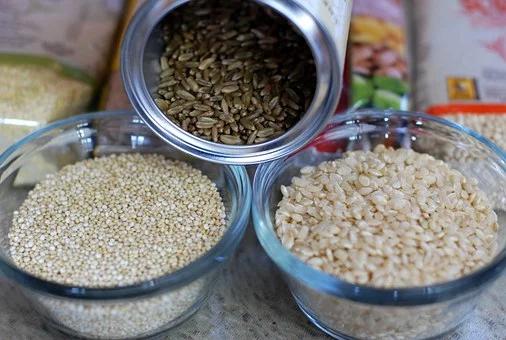
First, dietary interventions.
Based on standard body weight requirements, reduce the amount of staple foods consumed by about 10-30% - in this case, replace at least one-third of staple foods with coarse grains - and eat plenty of low-starch vegetables to increase satiety and improve compliance with dietary interventions.
Coarse grains and whole grains that contain a lot of dietary fiber, such as brown rice, millet, oats, buckwheat, black rice, red beans, mung beans, sweet potatoes, and corn - they are high in carbohydrates but low on the glycemic index, and are good for sugar lovers as a major source of daily calories.
Sugar lovers should avoid foods such as refined sugar, candy and cookies, desserts and sweets, cakes and breads, and fine foods, and reduce the consumption of refined rice and noodles and their products.
Moderate amounts of fruits (100-200 grams per day), mushrooms and algae, a small amount of nuts (10 grams per day), milk, eggs, and soy products are indispensable.

Second, exercise interventions.
Exercise, which consumes glucose, replaces insulin sensitivity, enhances the body's cellular recognition and utilization of blood glucose, and reduces the risk of hyperglycemia.
1.5-2 hours after a meal, adhere to moderate intensity exercise for more than half an hour a day, which can be walking, jogging, cycling, swimming, hiking and so on. Pay attention to monitoring blood sugar to avoid hypoglycemic reaction.
Third, health literacy and psychological interventions.
Sugar lovers, it is advisable to learn more about knowledge and information related to diabetes disease, improve their health literacy, identify rumors and false information, try to guide their behavior in the right direction, and build up confidence in overcoming diabetes!
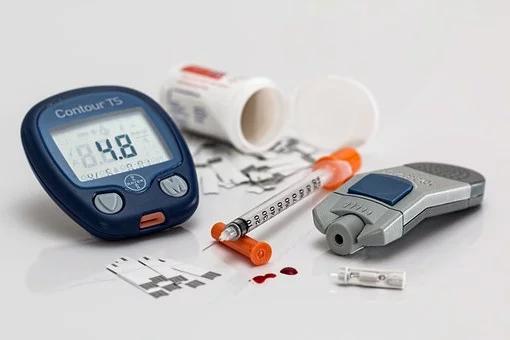
Fourth, blood glucose monitoring.
Blood glucose monitoring is an integral part of life interventions. Whether it is a dietary intervention or an exercise intervention, you need to be dynamically aware of your blood glucose so that you find a regular path for the consequences of your behavior.
Type 1 diabetics, on the other hand, and patients with diabetes caused by other diseases, need to be strictly medicated or injected with insulin, and use the lifestyle interventions mentioned above as an adjunct to treatment - with both hands!
Dietitian small sugar to answer for everyone. Many diabetics are concerned about taking medication, because they are worried about the side effects of long-term medication, we all want to not use drugs, only to take dietary control and exercise control, but it is not so easy to run around naked without medication.

First of all, type 1 diabetes must be controlled with insulin; the pancreatic function of type 1 patients is almost non-functional, and lifestyle interventions can only serve to assist in control.
Patients with type 2 diabetes can be divided into a variety of situations. If they have mildly elevated blood glucose, first-onset diabetes, and their glycosylated hemoglobin is 7% or less, they can first take lifestyle interventions, and their doctors will prescribe medications only if they cannot control them with diet and exercise. There are also some type 2 patients with very high blood glucose when diabetes is first detected, and after a period of intensive treatment with insulin, the insulin is discontinued and changed to medication or lifestyle intervention. It can only be said that these types of patients are more fortunate in that the pancreatic islets have not been completely damaged and the intensive insulin therapy has allowed the islets to rest and repair somewhat.
There is also diabetic inter-gestational or gestational diabetes, which also requires insulin during preparation and pregnancy, but after delivery the insulin can be withdrawn and switched to lifestyle interventions as appropriate.
Here Sugar to remind you that most diabetics are required to use medication, and it is difficult to control blood sugar without medication. But we should not be discouraged, adhere to food control and exercise, can reduce the use of hypoglycemic drugs and insulin.
Hope Sugar's answer can help sugar lovers, more diabetes encyclopedic knowledge welcome to follow us!
The treatment plan for diabetes is based on the patient's own situation, such as the patient's blood glucose, pancreatic islet function, complications, etc. It is important not to blindly use medication, otherwise the condition may be delayed. The treatment of diabetes is not only medication, but also diet and exercise are very important, and you must ensure that you know the changes in blood glucose well.
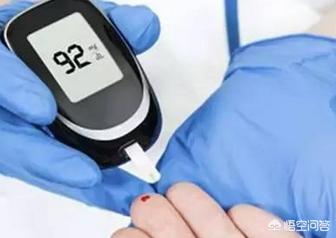
In which cases can I keep my blood sugar under control without medication?
1, clinically there are some diabetic patients have a clear trigger, or drugs (diuretics, thyroxine, etc.) or endocrine diseases (hyperthyroidism, cortisolism, etc.) or stress factors (trauma, surgery, infarction, etc.), because these patients themselves are due to these factors, so after stopping the drug, the disease is treated, it is likely that the patient's blood glucose will return to normal, and do not need to take the drug.
2, many pregnant patients who use insulin to control their blood glucose during pregnancy can have their blood glucose return to normal after giving birth, and there is no need to continue using insulin at this time.
3, if it is early diabetes, the condition is mild, pancreatic β-cells decline is not serious, through changing lifestyle habits, regulate bad diet, it is possible to control blood glucose in a safe range.

Because of the prevalence of diabetes in today's society, there are many rumors that exist, many that are easy to discern and many that are easy to mislead:
1, diabetics can't eat sweet:It's true that sugar should be controlled in intake, but that doesn't mean not eating any at all - our bodies need sugar.
2, the lower the blood sugar, the better:High blood glucose is bad, but too low blood glucose is not good either; excessive fluctuations in blood glucose are likely to make the patient dizzy and may even cause brain cell damage.
3, diabetes is fine, it can't kill you:Diabetes itself is not dangerous; what is dangerous are the complications that come with it, such as heart attacks, brain infarcts, kidney disease, etc., which are very dangerous.
4, so-and-so took a prescription and got better:I do not know when, I found that every countrymen have a prescription at home, the most critical effect is also particularly good, eat down the leg does not hurt, the waist does not ache, a breath of air can go up to the 10th floor, I do not have access to these prescriptions, I can not know the efficacy of the medicine, but I would like to say that the ancient times may not have so many kinds of miraculous medicines, and now these so-called prescriptions and where do they come from? Unproven drugs, do you really dare to eat, want to be a guinea pig?

In which case, diabetes can be controlled well by lifestyle interventions without medication? It is necessary to look at the situation, and specific questions need to be analyzed.
As a clinical pharmacist, going down to the clinic to participate in drug therapy is usually an important work, usually need to follow up and manage patients with chronic diseases, such as regularly assessing the effectiveness of medication in patients with hypertension and diabetes mellitus, adverse drug reactions, and formulating drug adjustment programs, etc. More importantly, it is important to provide medication guidance and health education to the patients, and to prevent and treat diseases before they become sick.
One of the questions that is often asked in conversations with patients is:Do I have to take medication if I have diabetes? If my blood sugar is under control, can I reduce or stop my medication?We're going to talk to you today, and we expect you to get it right.
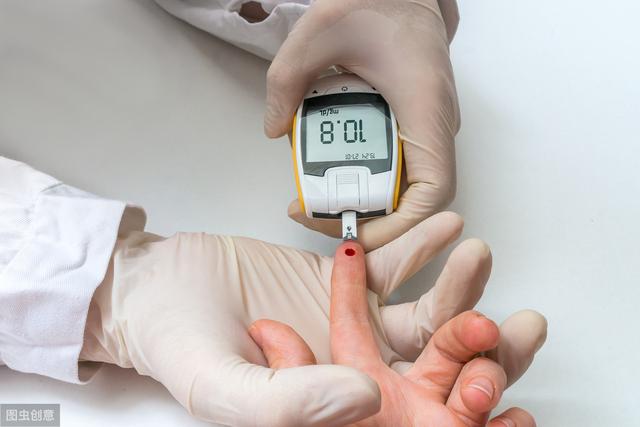
Do I have to take medication if I have diabetes? In what cases can I go without medication?
Not necessarily, ifGlucose-lowering medications are not necessary when non-pharmacological treatments provide good control of blood glucose.
Diabetes is a chronic disease that cannot be cured by existing medical means, so for people with diabetes, it requires lifelong adherence to treatment, and diabetes treatment does not refer to medication alone, but includesNutritional therapy, exercise, hypoglycemic drugs, education about diabetes, and blood glucose monitoringIntegrated management within.
One of the lifestyle interventions, centered on sensible diet and exercise, is the basic therapeutic measure for every diabetic to control blood glucose. If a diabeticWhen blood glucose can be effectively controlled with active lifestyle interventions, there is no need to apply medication.Conversely, if lifestyle interventions alone do not bring the patient's blood glucose control up to standard, glucose-lowering drug therapy should be initiated. Of course, for those diabetic patients who are unable to cooperate with dietary control and reasonable physical exercise, medication is necessary in order to control high blood glucose.

It is worth noting that due to the increased attention being paid to diabetes, many people at high risk for diabetes will actively engage in diabetes screening and blood glucose monitoring in order to detect diabetes earlier. At this time, their blood glucose is often not very high, and many of them can control their blood glucose well with diet and exercise, without the need for medication.。Also.Most patients with gestational diabetes mellitus have relatively mild hyperglycemia that can be well controlled with scientific dietary modifications and exercise, and only a few patients require medication.
A special reminder to all diabetics is thatIf diagnosed with type 1 diabetes, insulin therapy must be started immediately after diagnosis and maintained for life.Because people with type 1 diabetes have a near-total lack of insulin in their bodies, they must rely on exogenous insulin supplementation in order to effectively maintain stable blood glucose and avoid diabetic ketoacidosis, a life-threatening acute complication of diabetes.
In addition, patients with type 2 diabetes should be aware that type 2 diabetes is a progressive disease, with a tendency for blood glucose to rise gradually as the disease progresses; therefore, the treatment regimen for type 2 diabetes is not static, and the intensity of treatment intensifies as blood glucose rises.Those patients who may initially be able to effectively control hyperglycemia with lifestyle interventions alone will later require combination drug therapy.

If my blood sugar is under control, can I reduce or stop my medication?
On the question of whether diabetic patients can reduce and stop medication after glucose-lowering drug treatment to make blood glucose improve, it is necessary to analyze the patient's condition on a case-by-case basis.
For people with type 1 diabetes, insulin therapy must be applied for life and it is not possible to stop taking insulin.This is because they have a near-total lack of insulin in their bodies and must rely on exogenous insulin supplementation to effectively maintain stable blood glucose and avoid life-threatening acute complications of diabetes. Of course, there is a period of time after initial insulin therapy in type 1 diabetes when the dose of insulin can be drastically reduced or even insulin discontinued, but this phase does not occur in every type 1 diabetic, and even if it does, it is maintained for a relatively short period of time, and it is unrealistic to hope for a complete discontinuation of insulin.
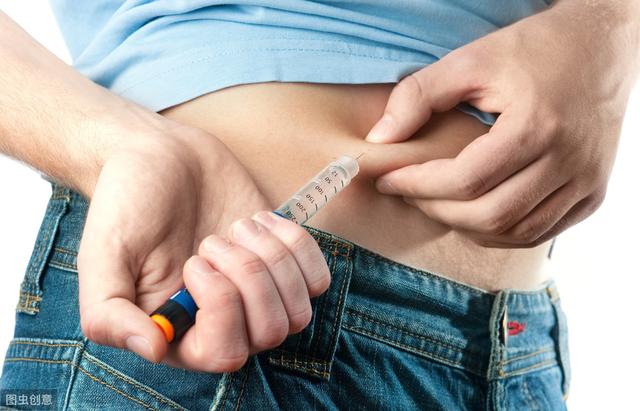
The question of whether people with type 2 diabetes can stop taking their medications after they have achieved good glycemic control is even more complex. There have been a number of medical studies that have found thatSome newly diagnosed type 2 diabetes mellitus, after a short period of intensive glycemic control with medication, can be brought into glycemic control without the use of medication in subsequent periods with good diet and exercise therapy alone.This is closely related to the significant improvement in the patient's islet function and insulin resistance status.
However, due to the progressive nature of type 2 diabetes mellitus, as the disease progresses, the insulin secretion function will gradually decrease, and blood glucose will then tend to gradually increase, increasing the need for hypoglycemic drug therapy.
So in the long run, in addition to lifestyle therapy, diabetes treatment still requires the use of hypoglycemic medication and adherence to medication.Those patients who have a long duration of diabetes and can only control their blood glucose by applying hypoglycemic drugs, especially by combining multiple drugs, it is usually impossible to stop using hypoglycemic drugs. As for those patients whose blood glucose is not controlled after treatment with hypoglycemic drugs, it is even more impossible to talk about reducing or stopping the drugs.
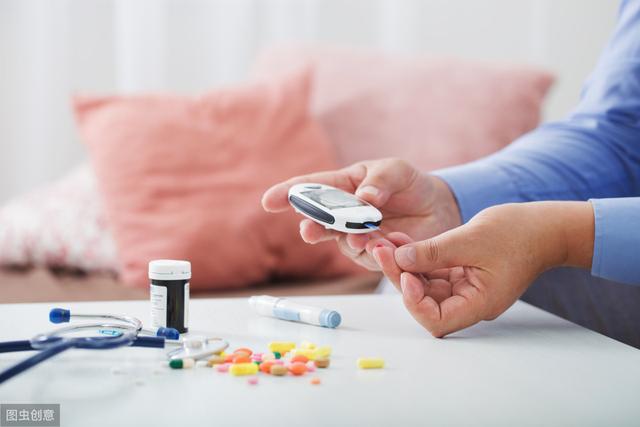
In conclusion, when blood glucose is stabilized over time and there are good lifestyle interventions, theVery few people with type 2 diabetes are able to stop their medication for a period of time, but blood sugar needs to be closely monitored during discontinuation.
Complete discontinuation of the medication is not recommended for most people with type 2 diabetes, as reckless discontinuation of the medication may cause rebound elevations in blood glucose and even serious complications. Just as it is unsafe to disband an army and destroy weapons after a short-term victory in a war. Therefore, it is often only possible to disarm (reduce medication), not to abolish the army (stop medication completely).
The majority of diabetic patients are reminded that they should never reduce or stop their medication on their own during glucose-lowering treatment, and if they want to know whether they can reduce or stop their medication, they must consult an endocrinologist beforehand. Even if the endocrinologist evaluates that the medication can be reduced or stopped, it is still necessary to continue to maintain a good lifestyle and closely observe the changes in blood glucose after reducing or stopping the medication. If there is a significant increase in blood glucose, it is necessary to seek medical attention and continue to increase the medication or medication dosage.

This problem I think so, a person early on got diabetes himself is no feeling, only know his appetite is very good to eat a lot of an old saying, as long as people eat a lot of body is healthy. People have this kind of paralyzing thought is also to get by with the mixed life so mixed. People in the unit work physical labor work intensity is also quite adult calories and glucose consumption also maintain a balance, people do not know to the middle-aged and elderly, this time the unit organized a physical examination of their own in the physical examination report to see their own blood glucose value of 7.5, to see the standard blood glucose value of 6.1, 7.5 a 6.1 = 1.4, exceeding the standard blood glucose value of 1.4, took the report to the Internal medicine doctor looked at the doctor said; you are early diabetes is mild, the doctor said; you have to take medication prescribed two boxes of hypoglycemic drugs, the problem looked good after returning home to repeatedly think about this issue of mild diabetes themselves can control their mouths appropriate exercise, to bring down the value of blood glucose. Then through online access to knowledge about the occurrence of diabetes, and further recognize that most people in our country have type 2 diabetes, type 2 diabetes is eating too much nutrition is too good, resulting in the body's endocrine dysfunction disorder, thereby affecting the insulin cells produce resistance to break down glucose function. Recognize the crux of it we should be how to lower their blood sugar to return to normal blood glucose values, because the main cause of type two diabetes is glucose in the body, then we have to control the amount of staple food rice, steamed bread, Chinese people like to eat rice, steamed bread we have to reduce the amount of rice or steamed bread you originally ate a pound a day is now changed to eat three taels a day, eat one or two of each this method is through practice! The conclusion is completely correct. Not that other foods can not eat. Milk, eggs, fine shredded meat, fine beef, river fish, seafood (eat less), any copy of the dish can not put sugar, vegetables can eat all (three vegetables can not eat, three taro, potatoes, taro, their ingredients in the starch will be broken down into glucose) fruit can eat all (three fruits can not eat, bananas, watermelon, fire fruit) drink more tea and boiled water, appropriate exercise. People are to have the spirit, although the hypoglycemic drugs can help lower blood sugar, but can not cure diabetes instead of blood sugar will be a moment of high, a moment of low, resulting in hypoglycemia, eat the medicine will be lifelong medication. We might as well try to abstain from taking medication so that their insulin cells will not disappear so that it can survive for a long time.
In which case can diabetes be controlled well by lifestyle interventions instead of medication?
The problem is that diabetes is a once-in-a-lifetime disease, and there is no way to control your blood sugar without medication. This is the reason why diabetes is so difficult to treat. The main thing is that the insulin in our body, but the lack of insulin will not be able to control the body's blood sugar, so you can only rely on medication to control a but you do not take medication, the blood sugar will rise, the body's disease on the emergence of the disease. So it can only be controlled but not cured.
Do I have to take medication if I have diabetes? Can diabetes be controlled through life interventions alone without medication? This is often asked by friends, there is indeed such a situation, even if the diagnosis of diabetes, it is not necessary to rush to take medication, in some of the more mild cases of diabetes friends, you can first try to carry out life management to control blood sugar.
Glycemic control of diabetes, is by no means only eat the glucose-lowering drugs can be so simple, often talked about in the 5 horse-drawn carriage of diabetes control, directly involved in blood glucose control of three - dietary regimen, exercise exercise, rational use of medication, the other two glucose monitoring, diabetes education, mainly to improve the patient's self-management capabilities, and monitor the level of good blood glucose control. For some new-onset diabetic patients, if the blood glucose level is in the situation of just exceeding the standard, the pancreatic islet cell function is good, and the insulin resistance situation is not serious, it is completely possible to choose dietary conditioning and exercise to strengthen the control of blood glucose in the two life interventions, in the case of strict life conditioning, blood glucose is still unable to effectively reach the standard, then consider the addition of medication to control blood glucose is not too late.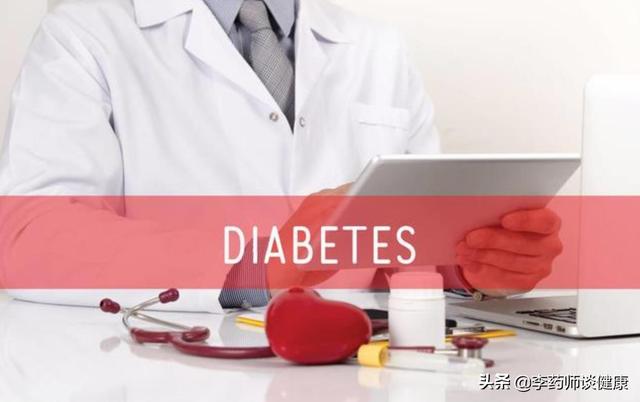
What is considered a mild diabetic problem? For example, if you are a new diabetic, your fasting blood sugar is just above the diagnostic value of 7.0 for diabetes, and your 2-hour postprandial blood sugar is still in the range of abnormal glucose tolerance, and has not yet exceeded 11.1 mmol/L. For such a case, your doctor usually will not suggest that you must take medication to control your blood sugar. You can first try to correct the excess energy from life to improve the problem of high blood sugar.
Excess energy is one of the root causes of high blood sugar. Therefore, for diabetic blood glucose control, dietary control and strengthening exercise are two important aspects of life management. Through dietary control of intake, especially rational dietary structure, under the premise of maintaining balanced nutrition, try to control the intake; at the same time, strengthen exercise, under the premise of ensuring exercise safety, to strengthen the body's energy consumption, improve the body's metabolic ability, improve the insulin resistance, and strengthen the metabolism of glucose utilization of the muscle, through the two aspects mentioned above, dietary control of the source, and strengthen exercise to enhance consumption, so as to improve and control high blood glucose. Exercise to strengthen the consumption, so as to improve and control the body's excess energy, excess energy control, blood glucose will naturally have a good improvement and decline, very often, for new diabetic patients with mildly elevated blood glucose, through a reasonable diet and exercise interventions, the blood glucose level can be reduced, and if you can control the level of glycated hemoglobin to a level of 7.0% or less, and maintain long-term If they are able to control their glycated hemoglobin level to below 7.0% and maintain it for a long period of time, there is no need to consider taking medication to control their blood sugar.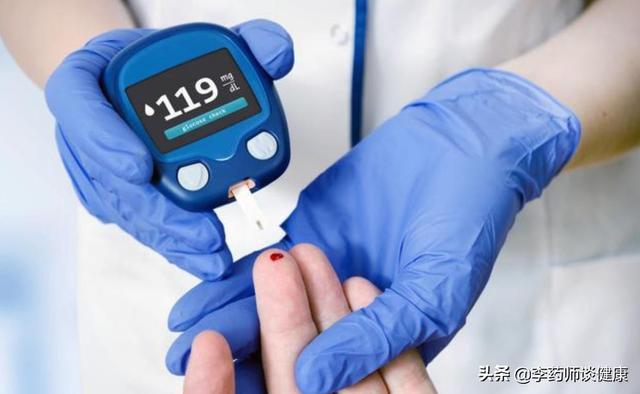
It is important to note that not all new-onset diabetics will be able to keep their blood sugar under control, or within the target range, through diet and exercise. Through diet and exercise, it is possible that blood glucose can be effectively controlled, and through strict self-discipline in life, so that the blood glucose is maintained in a reasonable range; but there is also the possibility that life has been very careful, dietary adjustments, exercise exercise has also strengthened, but the blood glucose can not be controlled to meet the standard, in this case, it is necessary to consider the use of medication to strengthen the blood glucose control, after all, the purpose of our control of diabetes is to minimize the impact of high blood glucose, but also to improve blood glucose control. After all, the purpose of controlling diabetes is to minimize the health hazards brought about by high blood sugar, whether it is life regulation, or rational use of medication, the ultimate goal should be to stabilize and control blood glucose, reduce the risk of complications of diabetes.
If you want to know how diet and exercise regulate your blood glucose, it is important to monitor your blood glucose level frequently. For new-onset diabetic patients who do not take medication first and control their blood glucose level through life regulation, you may want to measure your blood glucose control level frequently. In addition to daily self-measurement of blood glucose at home, it is also recommended to check your glycated haemoglobin level every 3 to 6 months during the period of life intervention for controlling blood glucose. Glycated hemoglobin level, if you can steadily control your glycated hemoglobin level to below 7.0%, it means that your blood glucose control through lifestyle intervention is successful and ideal.
In short, whether diabetics can control blood glucose only through life interventions, and can not be generalized, as long as you can through strict self-discipline, strengthen life control, blood glucose control stable and up to standard, of course, is the case that you can not take medication, but if you can not be completely through the life of the regulation to control blood glucose up to standard, the medication should not be entangled, after all, the earlier the control of blood glucose levels, the diabetes complication After all, the sooner the blood sugar level is controlled, the lower the risk of diabetic complications will be.The greater the health benefits to the body.
This question and answer are from the site users, does not represent the position of the site, such as infringement, please contact the administrator to delete.
